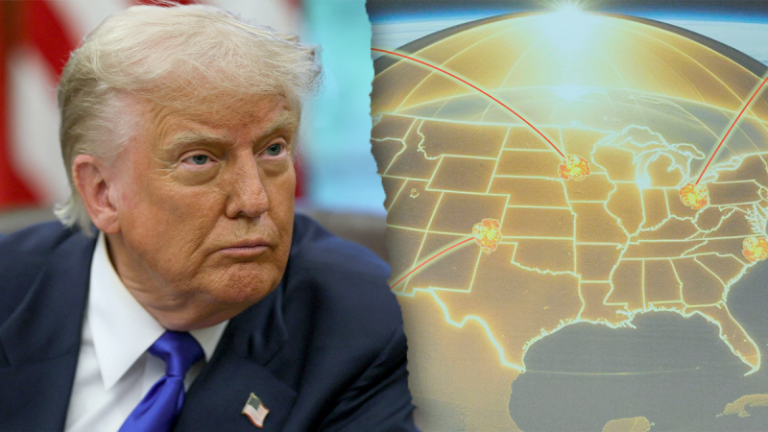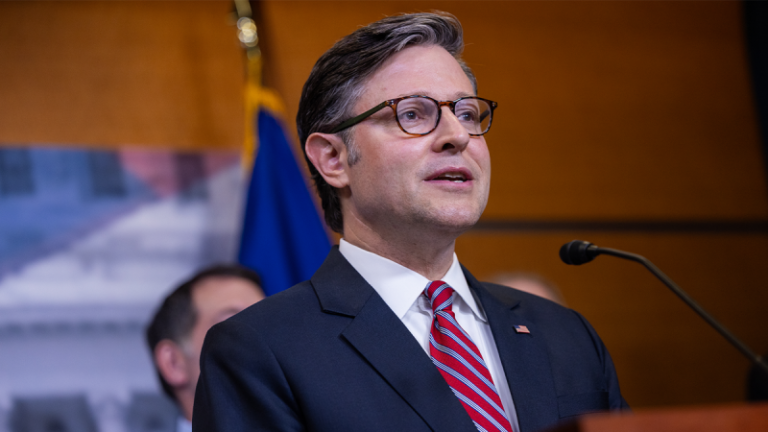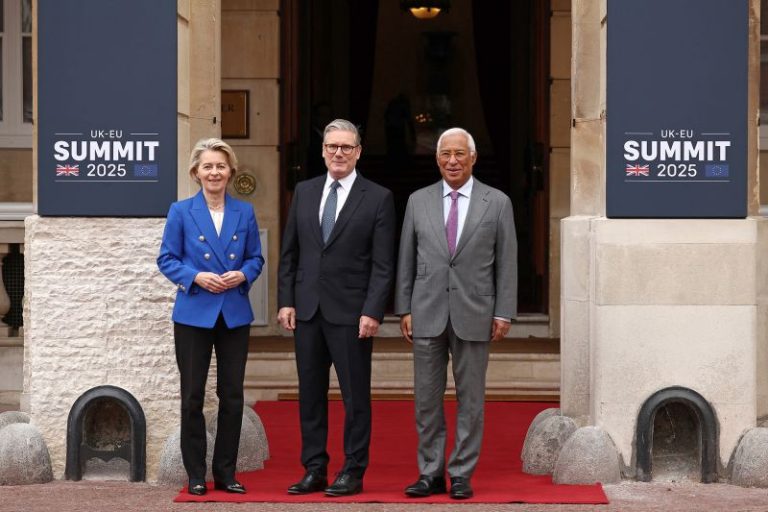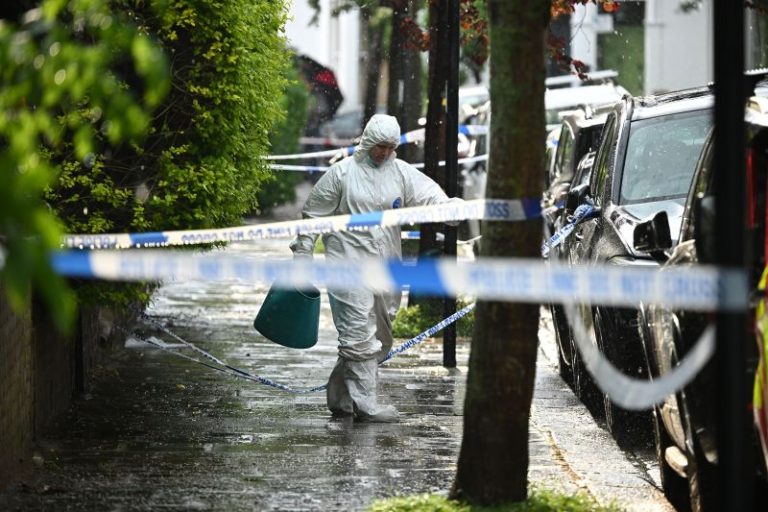Israel launched a new devastating ground offensive in Gaza over the weekend just as US President Donald Trump departed the region without sealing a ceasefire and hostage deal.
The Israeli military said its forces moved into northern and southern Gaza over the past day as part of the “Gideon’s Chariots” operation, which Israel warned would take place if Hamas doesn’t agree to a new hostage deal on its terms.
The ground operation came after days of heavy airstrikes on the Gaza Strip, which according to health authorities there have wiped out entire families.
Israel says it will allow a “basic amount of food” into the besieged enclave, a move which Prime Minister Benjamin Netanyahu hinted was due to intense pressure from Israel’s allies. Hamas and Israel also began indirect talks in the Qatari capital Doha on Saturday.
Here’s what we know about Israel’s new offensive and what it means for Gazans.
On Monday, Netanyahu said that Israel plans to take control of all of Gaza.
The official said earlier in May that the plan would be implemented after Trump’s trip to the Middle East to “provide a window of opportunity” to reach a hostage deal.
The warring parties failed to reach a deal during Trump’s visit last week, and Israel pressed on with its operation over the weekend. This began with a series of intense airstrikes last week and was followed by an expanded ground offensive on Sunday.
The Israeli military said Sunday that over the past week, it struck more than 670 “Hamas targets” in a wave of preliminary airstrikes across the enclave.
Health officials in Gaza said on Sunday that the operation killed over 100 people overnight, and shuttered the last functioning hospital in the enclave’s north. Entire families were killed while sleeping, according to the Palestinian Ministry of Health.
More than 53,000 people have been killed in Gaza since Israel began its war on October 7, 2023, according to the ministry, which added that the majority of the dead are women and children.
On Sunday, the Israeli Prime Minister’s Office said that due to the “operational need,” Israel will allow a “basic amount of food” to enter Gaza to prevent famine in the enclave, which Israel says would jeopardize its military operation.
Netanyahu has also hinted that his country could lose the support of its closest allies, including the United States, if it doesn’t lift its 11-week blockade on the territory, which has further exacerbated a humanitarian crisis on the ground that aid agencies, including the United Nations, have said could lead to widespread famine.
The UN had warned that Gaza’s entire population of over 2.1 million people is facing a risk of famine following 19 months of conflict and mass displacement.
If “a situation of famine” arose in Gaza, Israel “simply won’t receive international support,” Netanyahu said Monday.
“Even our closest allies in the world – US senators I know personally and who have been staunch, unconditional supporters of Israel for decades – are coming to me and saying: ‘We are giving you all the support to achieve victory – weapons, support for your efforts to eliminate Hamas, protection at the UN Security Council – but there’s one thing we cannot accept: images of mass starvation… If that happens, we won’t be able to support you anymore,’” Netanyahu said in an address posted to Telegram.
“We are approaching a dangerous point we don’t want to reach,” he said, adding that the military would find a “solution to this problem” to achieve its war aims.
Netanyahu’s explanations were largely aimed at mollifying his right-wing supporters who adamantly oppose the entry of any humanitarian aid to Gaza, including to civilians.
Asked when aid will start entering into the enclave, Netanyahu’s office said on Monday that “it will happen in the near future.”
A controversial American-backed organization, Gaza Humanitarian Foundation (GHF), tasked with delivering aid to the territory, welcomed the Israeli announcement about allowing food aid as a “bridging mechanism” until the group is fully operational.
The foundation is meant to run a new, tightly controlled mechanism for aid deliveries that has been approved by Israel and the US, which both countries say is designed to prevent Hamas from “stealing” aid. The GHF-run mechanism has come under criticism from top humanitarian officials, who warn that it is insufficient, could endanger civilians and even encourage their forced displacement.
Given that the initial sites would only be in southern and central Gaza, the UN warned, this could be seen to be encouraging Israel’s publicly stated goal of forcing “the entire Gazan population” out of northern Gaza, as Defense Minister Israel Katz put it earlier this month.
Jake Wood, the foundation’s executive director, said Israel has also agreed to allow it to establish two sites in northern Gaza, which he believes can be up and running within the first 30 days of its operations.
The UN’s aid chief, Tom Fletcher, said Friday that there’s no need for an alternative Gaza aid plan. “Let’s not waste time: We already have a plan,” he said.
In one of the strongest condemnations of Israel’s war by a high-ranking UN official, Fletcher said the international community must prevent “genocide” in the enclave.
“Will you act – decisively – to prevent genocide and to ensure respect for international humanitarian law? Or will you say instead, ‘we did all we could?’” he told the UN Security Council.
Trump visited Gulf Arab states last week, including Qatar, where his negotiating team was engaged in ceasefire and hostage talks.
The president said this month that he wanted an end to the “brutal war” in Gaza and did not visit Israel during his tour of the region, which he had already twice bypassed this month in reaching bilateral deals with regional militant groups.
On Wednesday, Trump denied that Israel had been sidelined. “This is good for Israel,” he said. But on Thursday, he said he wanted the US to “take” Gaza and turn it into a “freedom zone.”
He also told Fox News on Saturday that he is not frustrated with Netanyahu, as the Israeli prime minister has got “a tough situation.” While in the Gulf, Trump also acknowledged that people are starving in Gaza and said the US would have the situation “taken care of.”
“We’re looking at Gaza. And we’re going to get that taken care of. A lot of people are starving,” he told reporters in UAE capital Abu Dhabi.
On Sunday, US Special Envoy Steve Witkoff told ABC News that the issue with getting aid into Gaza is primarily logistical.
“It is logistically complicated and the conditions on the ground are dangerous,” he said. “That said, we do not want to see a humanitarian crisis and we will not allow it to occur on President Trump’s watch.”
Israeli Defense Minister Katz said Saturday that the new military operation in Gaza is what pressured Hamas to return to negotiations in Qatar last week. But analysts and officials say it’s more likely that the militant group agreed to restart the talks following Trump’s Middle East visit.
Senior Hamas official Taher Al-Nunu confirmed Saturday that “negotiations without preconditions” had started in Doha, according to Hamas-run al Aqsa TV.
It is unclear how well the discussions are progressing in Doha. Israel on Sunday indicated its openness to ending the war in Gaza if Hamas surrenders, a proposition the group is unlikely to accept as long as Israel continues to insist on Hamas disarming.
Meanwhile, Hamas officials have given conflicting comments about the talks.
Hours later, another senior Hamas leader, Sami Abu Zuhri, denied and contradicted that proposal, posting a statement on Al-Aqsa TV’s Telegram: “There is no truth to the rumors regarding the movement’s agreement to release nine Israeli prisoners in exchange for a two-month ceasefire.”
Zuhri went on to say: “We are ready to release the prisoners all at once, provided the occupation commits to a cessation of hostilities under international guarantees, and we will not hand over the occupation’s prisoners as long as it insists on continuing its aggression against Gaza indefinitely.”
This post appeared first on cnn.com










